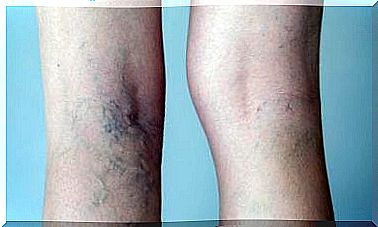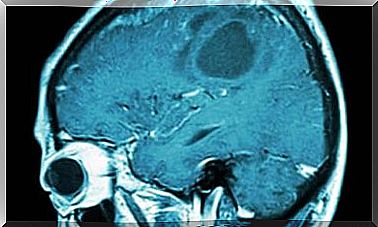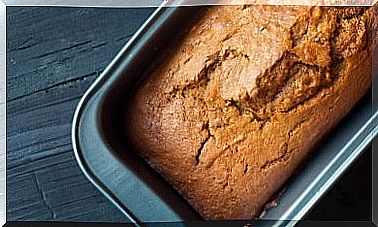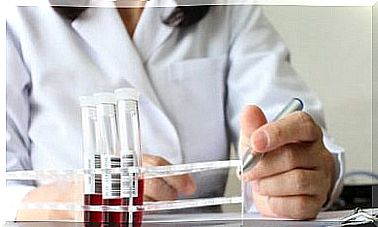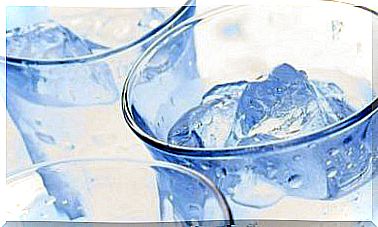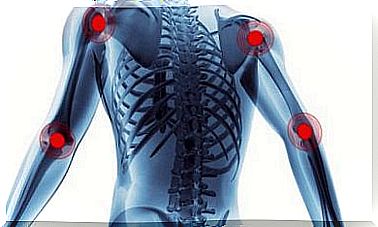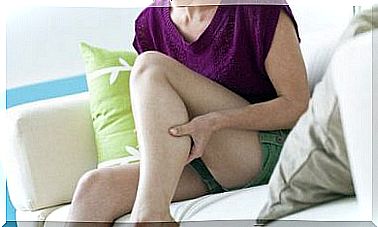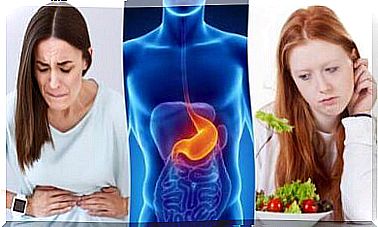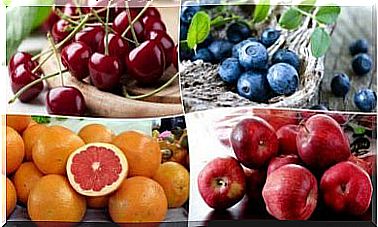Diet With Sorbitol Intolerance
With sorbitol intolerance, you have to avoid certain foods in your diet, such as certain types of fruit, processed products and chewing gum. Learn more about this ailment today.

Do you feel discomfort, gas or diarrhea after consuming certain types of fruit, light products or chewing gum? Then you may suffer from sorbitol intolerance (also sorbitol intolerance or sorbitol malabsorption). Read on to learn what the diet should be like in this case.
What is sorbitol or sorbitol?
Sorbitol is a sugar alcohol found in its natural form in red algae, and in the leaves and fruits of plants of the Rosaceae family . These include, for example, the following types of fruit:
- Pears
- Apples
- Plums
- Quinces
- Peaches and apricots
Sorbitol is also very often used in the food industry as a sweetener, fattening agent and moisturizer, because this substance makes food sweet, but contains only a few calories.
Interesting facts about sorbitol intolerance
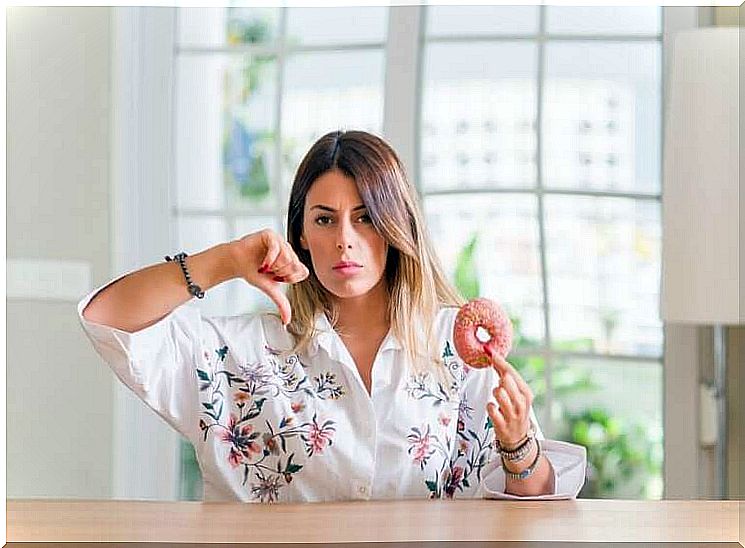
A Sorbitolintoleranz may occur in the intestine by the lack of specific GLUT transporters. But even people without this deficit can suffer from complaints. A healthy peerson can only consume a limited amount of this sugar alcohol, between 20 and 25 g. If this amount is exceeded, troublesome symptoms can occur.
There are two types of sorbitol intolerance:
- Primary intolerance: This occurs when there is a deficit in the sorbitol transporter GLUT-5. Genetic factors probably play a role, which is why this intolerance can develop in the course of life.
- Secondary intolerance: Genetics don’t play a role here. The cause in this case is an intestinal disease (gastroenteritis, inflammatory bowel disease, celiac disease, etc.) that temporarily or permanently damages the brush border of the intestinal mucosa.
Sorbitol intolerance: symptoms
Patients with sorbitol intolerance can have various symptoms that can be mild or intense. These include, for example:
- Abdominal pain or colic
- Swelling
- Bloated stomach
- Gas formation
- Rumore in the intestines
- Diarrhea with copious amounts of gas
Which foods contain sorbitol?
If you suffer from sorbitol intolerance, you need to carefully analyze your diet in order to consume as little sorbitol as possible. The following foods contain large amounts of this substance:
Foods that contain sorbitol in its natural form (sorted from largest to smallest amount)
- Fresh fruits: pears, plums, peaches, apricots, apples, grapes, strawberries, raspberries, blueberries
- Preserved fruit: apple juice, canned strawberries, cranberry juice, elderberry juice, blackcurrant juice, canned raspberries
- Dried fruit: prunes, dried peaches and apricots, dried apples, dried dates and grapes.
Foods that contain artificial sorbitol
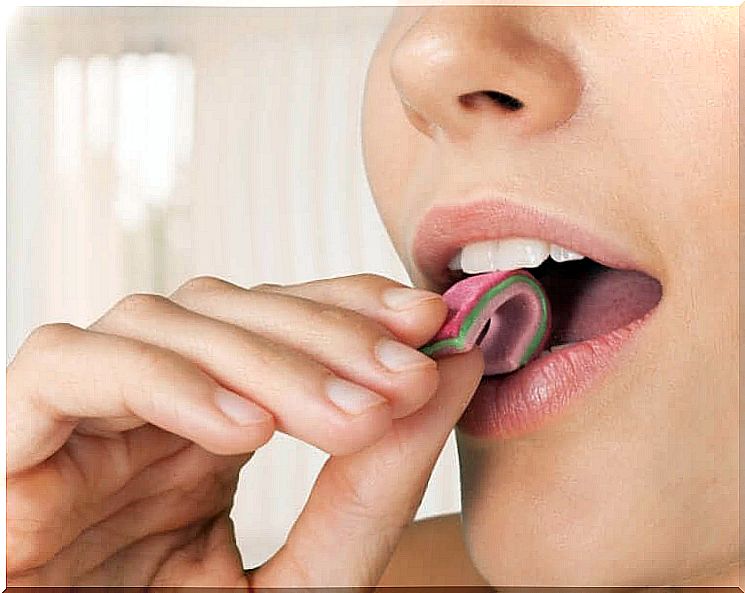
Sorbitol can be found in various foods as well as in cosmic or pharmaceutical products as an additive. On the label, this substance can be identified as “sorbitol” (E420i) or “sorbitol syrup” (E420ii).
The following industrially produced foods often contain sorbitol: jam, jelly, industrial baked goods, frozen food, chewing gum, light products or “sugar-free” products. Particularly with light products, caution is advised, because they can also trigger an intolerance with increased consumption.
A cosmetic product that contains sorbitol is for example: Toothpaste to give it a good consistency, to improve the taste and to make it more soluble. Pharmaceutical products with sorbitol are, for example, ointments for external use and cough syrups.
How is sorbitol intolerance diagnosed?
Usually the sorbitol H2 breath test (also H2 exhalation breath test or sorbitol intolerance test) is used for the diagnosis. If the organism is unable to absorb sorbitol, it is fermented by intestinal bacteria, which leads to a high molecular hydrogen content, which is measured during exhalation.
The patient must fast for 8 hours before the test. In the last 24 hours before the test, only a specific diet is allowed (no fruit, no vegetables and no legumes) so as not to slow down the intestinal transit. Laxatives and antibiotics are also taboo in the days before the examination.
If the test result is positive, the extent of the intolerance and the symptoms are determined so that a special diet recommendation can be made.
Dietary recommendations in case of sorbitol intolerance
- If you suspect intolerance, it is advisable to take the test and not change your diet on your own. Seek advice from your doctor or nutritionist.
- Always read the food labels carefully to make sure they don’t contain sorbitol.
- If you suffer from severe sorbitol intolerance, you should always be informed about the exact composition of cosmetic products or medication by specialist staff.
- Limit your consumption of fruits that contain large amounts of sorbitol.
- Be very careful with light products and chewing gum that contain sorbitol.
Do you think you have sorbitol intolerance? If you experience symptoms, be sure to get a medical exam. Your doctor will then give you additional recommendations that you should follow closely.

